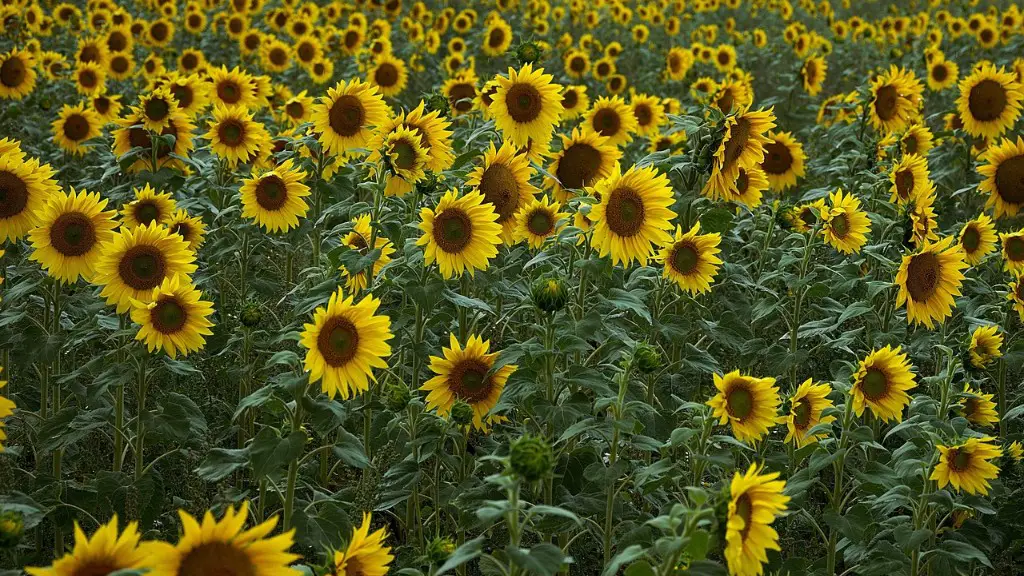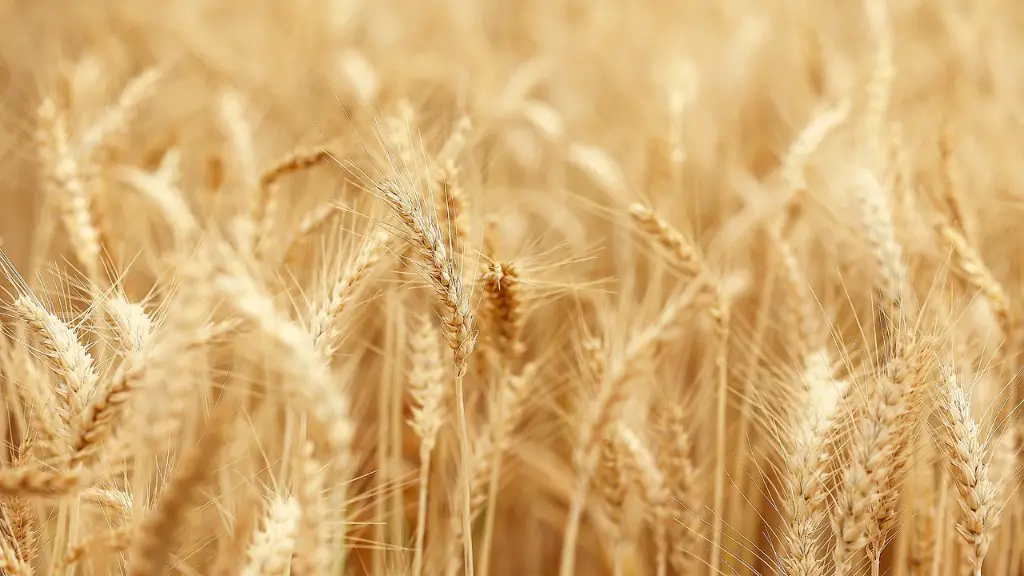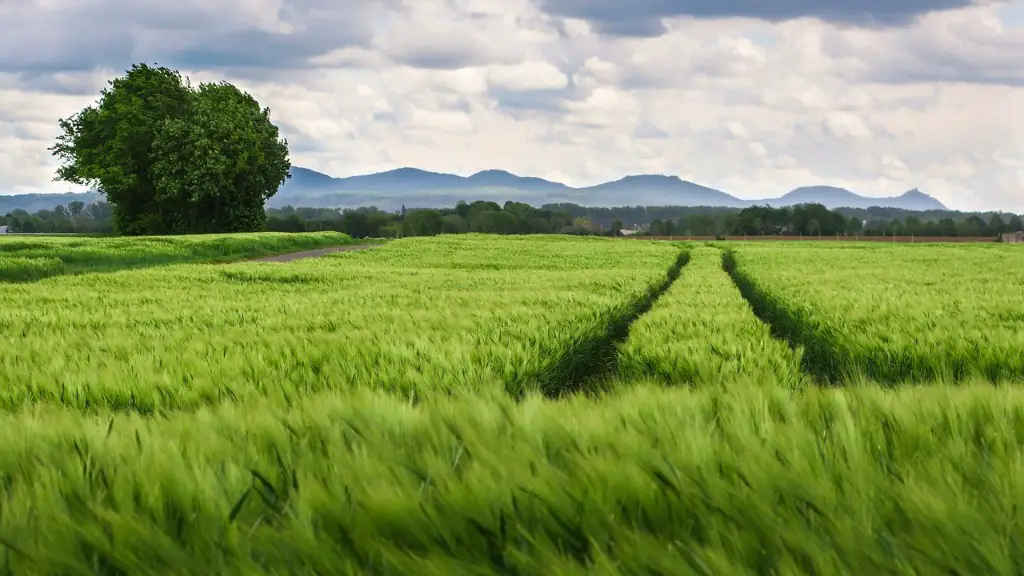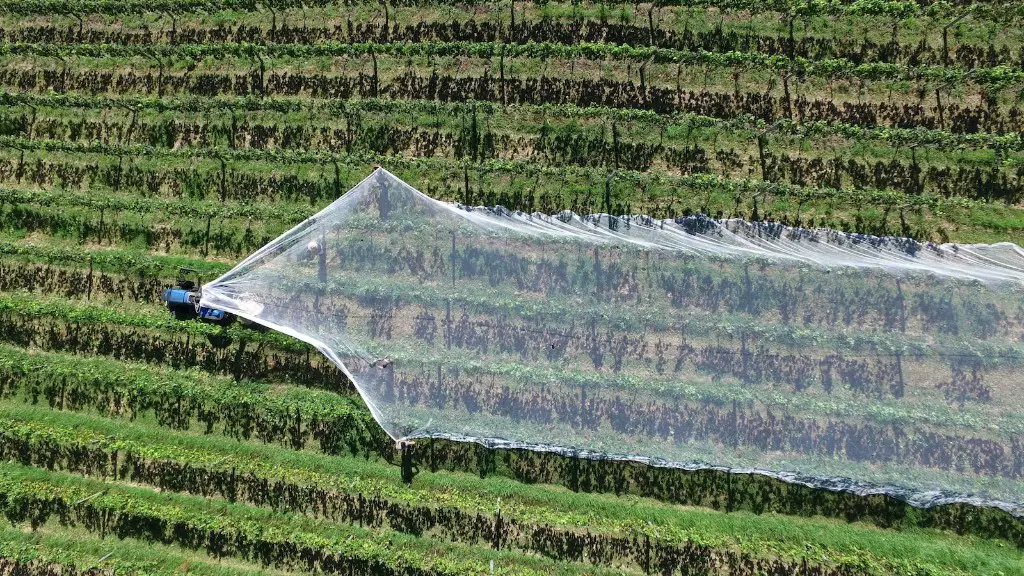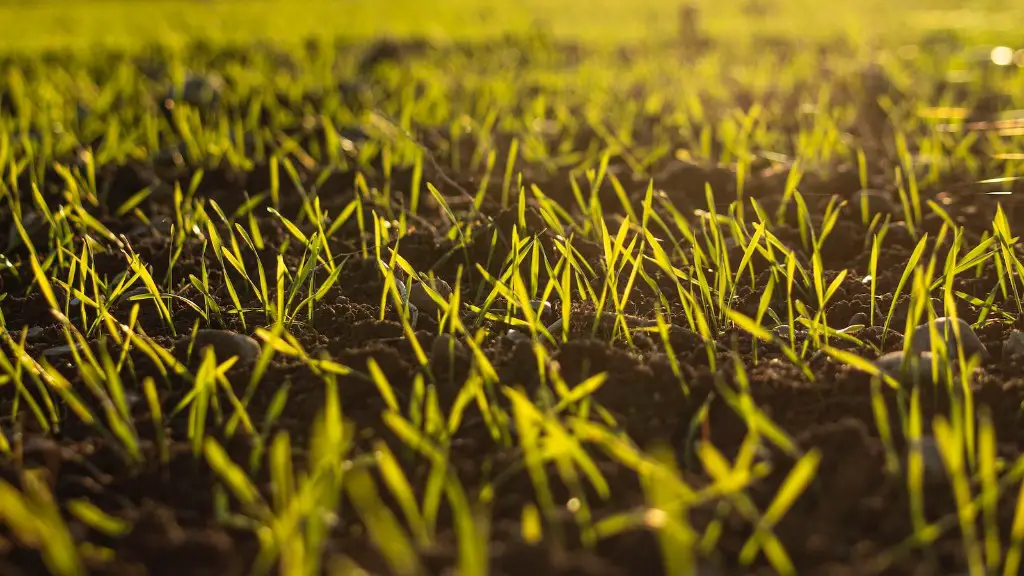Agriculture is the deliberate manipulation of land and other resources to produce food, fuel and other goods for humans. It is one of the most important human inventions, since it provided a consistent source of food and allowed for population growth. But when and how did agriculture begin? To answer this question, archaeologists and other researchers have looked at the archaeological and genetic evidence.
The earliest archaeological evidence of agriculture dates back to around 12,500 years ago in the Near East, or what is now modern-day Israel, Iraq, Jordan, Syria and Turkey. This type of agriculture is known as ‘horticulture’, where small-scale crops such as wheat and barley were grown with simple tools and techniques. By around 8,000 BC, farming methods had changed to include the domestication of animals, such as sheep and goats, used for food and wool.
The genetic evidence also points to Near Eastern origins for the development of agriculture. Genome-wide analyses of ancient DNA have revealed that major genetic changes occurred in Near Eastern populations from around 10,000 to 5,000 years ago. This is a period when the Near East was experiencing major environmental changes, as the climate became warmer and drier.
However, the specific cause of these changes remains unknown. Some researchers have suggested that the adoption of agriculture may have been driven by the need for a more reliable source of food. Others have argued that the spread of agriculture was driven by environmental and climatic changes, as the warmer and drier climate allowed for the growing of certain types of crops, such as grains and legumes.
Whatever the underlying cause, the emergence of agriculture is thought to have had a major impact on human societies. It allowed for larger settlements and population growth, as well as the development of long-distance trade and social stratification. It is also thought to have had an effect on human evolution, as evidence suggests that early farmers were more physiologically adapted to digest grains and legumes than their hunter-gatherer counterparts.
Impact of Agriculture on Society and Economy
The emergence of agriculture had a major impact on human societies and economies. By providing a reliable source of food, agriculture allowed for larger, more settled populations, which in turn led to the development of trade networks, the rise of cities and the emergence of complex social structures. This had a significant impact on the way in which people associated and interacted with one another, leading to the development of more formalized government systems, laws, and other aspects of human civilization.
Agriculture also gave rise to a variety of new professions and crafts. Farmers, for example, developed specialized skills for raising livestock and growing crops. This allowed for the emergence of other crafts, such as leatherworking or pottery making. These changes in the economic system allowed for the emergence of a more diverse range of social roles and increased specialization of labor, which greatly increased overall productivity.
Agriculture also had an effect on religion and spiritual beliefs, as it was often associated with harvesting and fertility gods. This gave rise to various forms of religious practice and religious art, which focused on venerating the gods responsible for supporting agricultural production.
The emergence of agriculture also had a significant impact on human diet, as the availability of cereal grains and legumes allowed for a much more balanced diet. This in turn had a positive effect on overall health, as people were able to consume a wider variety of foodstuffs.
Finally, the increasing reliance on agricultural production led to a number of changes in the way that wealth was distributed, as land and resources became concentrated in the hands of the wealthy elite. This in turn led to the emergence of a class-based society, with significant disparities in power and the accumulation of wealth. This further increased the level of stratification and inequality that exists in many societies today.
Tools, Technologies & Techniques of Agriculture
Agriculture relies on various tools and technologies to cultivate land and make it suitable for planting and harvesting. Early tools were simple and primitive, such as hoes and sickles, used to cut and cultivate the soil. Over time, more complex tools, such as ploughs and horse-drawn carts, were developed to make land cultivation easier.
In addition to tools, various technologies were developed to improve the efficiency and effectiveness of agricultural production. Irrigation systems, for example, allowed for the cultivation of crops in otherwise inhospitable climates. The use of fertilizers, pesticides and herbicides increased crop yields, while the introduction of mechanized equipment reduced the need for human labor. These technologies have greatly increased crop yields, allowing for larger populations and greater food security.
Agriculture also relies on various techniques to maximize efficiency and minimize damage to the environment. Crop rotation, for example, helps to maintain soil fertility, while organic farming relies on practices such as composting and employing beneficial insects to minimize the use of pesticides and other chemicals. Multiple cropping systems, in which different crops are planted sequentially in the same land, also increase yields and reduce the amount of land required for cultivation.
Finally, there has been a great deal of research into the genetic modification of crops, which could potentially improve the yield, nutrition, and pest resistance of various crops. In addition, scientists are also exploring the potential for using genetic modification to create entirely new crops, as well as improving current varieties for animal and human consumption.
Cultural Implications of Agriculture
The emergence of agriculture in human societies has had a number of cultural implications. In some cases, it has led to the increased status of certain classes of people, such as farmers, while in other cases it has led to the rise of social stratification, with those who own large amounts of land having greater power and influence than those who do not.
The emergence of agriculture has also led to increased social control and conformity, as it allowed for the formation of larger and more hierarchal societies. In some cases, it has even led to the establishment of forms of slavery and forced labor, as those in power were able to exploit the resources and labor of those who did not own land or had limited access to resources.
Agriculture has also been a major source of inspiration for human creativity and art. From the earliest wall paintings to modern art, agriculture has provided a source of inspiration for artistic expression. It has also been the source of many of our cultural rituals and festivals, such as harvest festivals, and has even influenced the way in which we celebrate key milestones in our lives, such as birthdays and weddings.
Finally, the emergence of agriculture has had a major impact on the way in which people think about the environment and the world around them. In some cultures, it has led to beliefs and practices which venerate the natural world, while in others it has led to a disregard for the environment, as people sought to extract maximum yields from the land with little regard for long-term sustainability.
Impact of Agriculture on the Environment
The emergence of and continued reliance on agriculture has had a major impact on the environment. Land which had previously been wilderness or forests is now used for crops and livestock, leading to the destruction and degradation of habitats, as well as the displacement of local wildlife.
Agriculture also uses large amounts of water, leading to increased water consumption and pollution in some cases. In addition, the use of pesticides, herbicides and fertilizers leads to the accumulation of pollutants in the soil, which can leach into rivers, aquifers, and other water sources.
Agriculture has also led to land degradation and deforestation in some cases. Cultivation of certain areas, such as the savannahs of Africa or the rainforests of South America, can lead to the destruction of native vegetation, while overgrazing can lead to soil erosion and desertification.
Finally, the use of fossil fuels, such as diesel and gasoline, has led to an increase in greenhouse gas emissions. This, in turn, has contributed to climate change, which is having a major impact on agricultural production and, ultimately, on food security.
Agriculture and Future Perspectives
Given the significant impact of agriculture on the environment, there is an increasing focus on developing more sustainable and environmentally conscious forms of agriculture. This includes practices such as organic farming, which relies on sustainable practices such as composting and crop rotation, or the use of beneficial insects to control pests. There has also been an increasing focus on the use of renewable energy sources, such as solar and wind, to power agricultural operations.
In addition, new technologies are being developed which could potentially improve agricultural productivity, while also reducing the environmental impacts. This includes the use of drones and smart irrigation systems to monitor crops and predict yields, as well as the use of sensors and other technologies to monitor soil health.
The use of genetics and genetic engineering is also becoming increasingly common, as scientists explore the potential for using genetic modification to create better-adapted crops and livestock. This could potentially lead to increased yields, reduced environmental impacts, and improved nutrition and health benefits.
Finally, there is a growing emphasis on the importance of developing stronger links between small-scale farmers, policy makers, and corporate agriculture. This could potentially lead to better links between producers, consumers, and global markets, while also providing support to small-scale farmers and helping to ensure food security.
